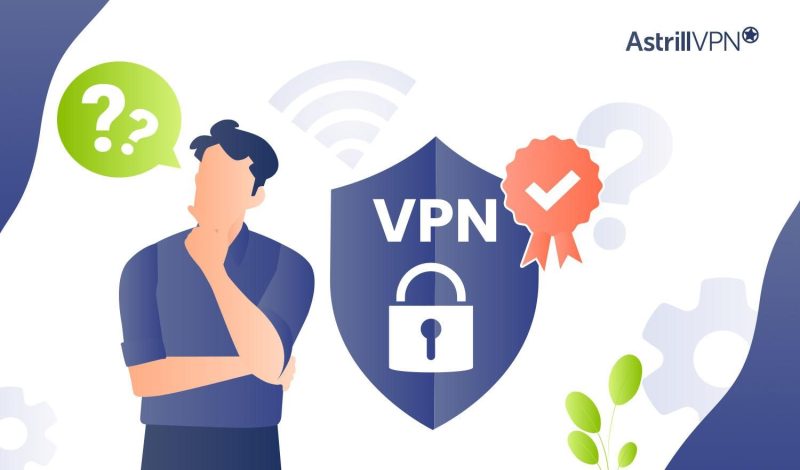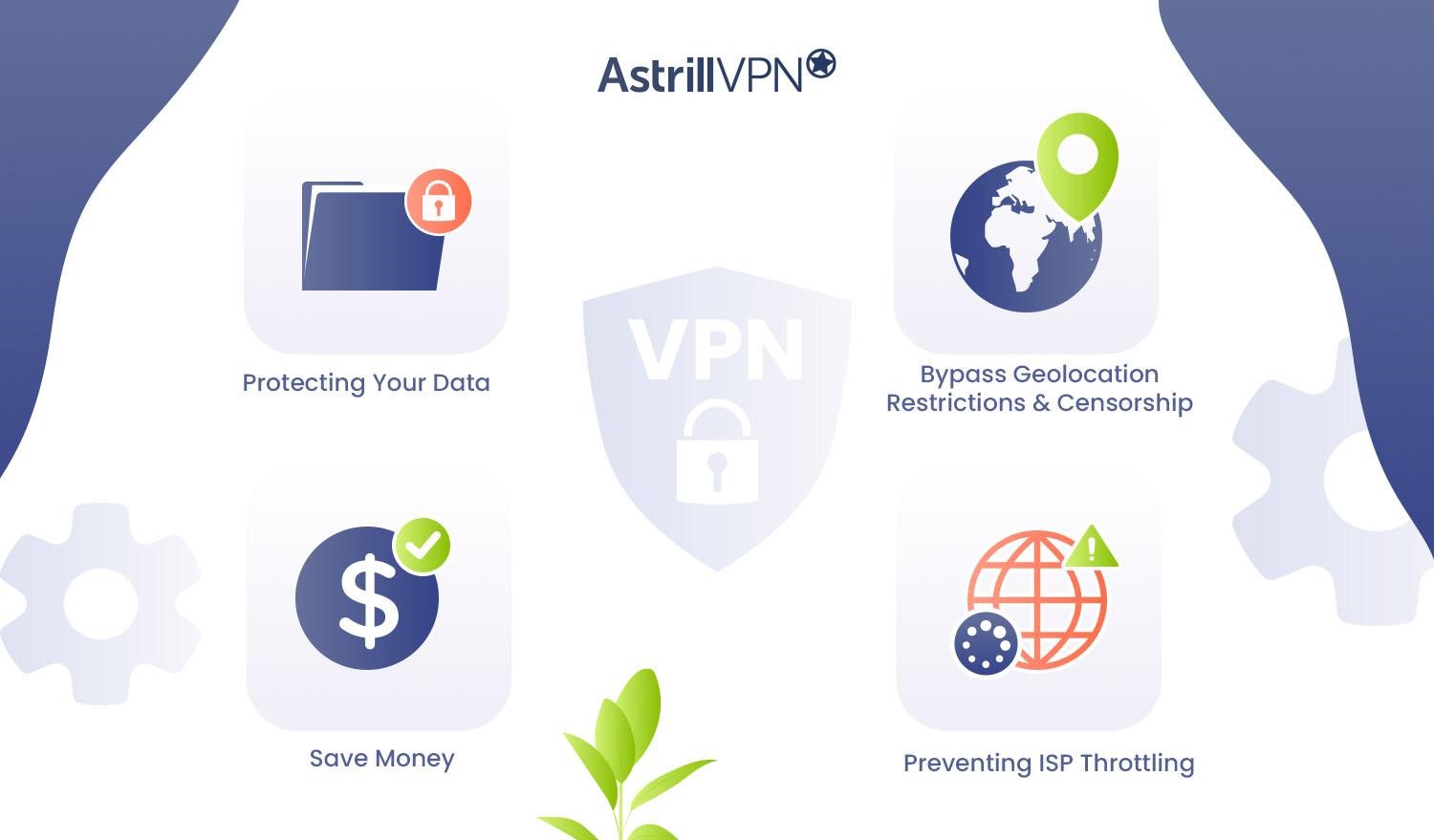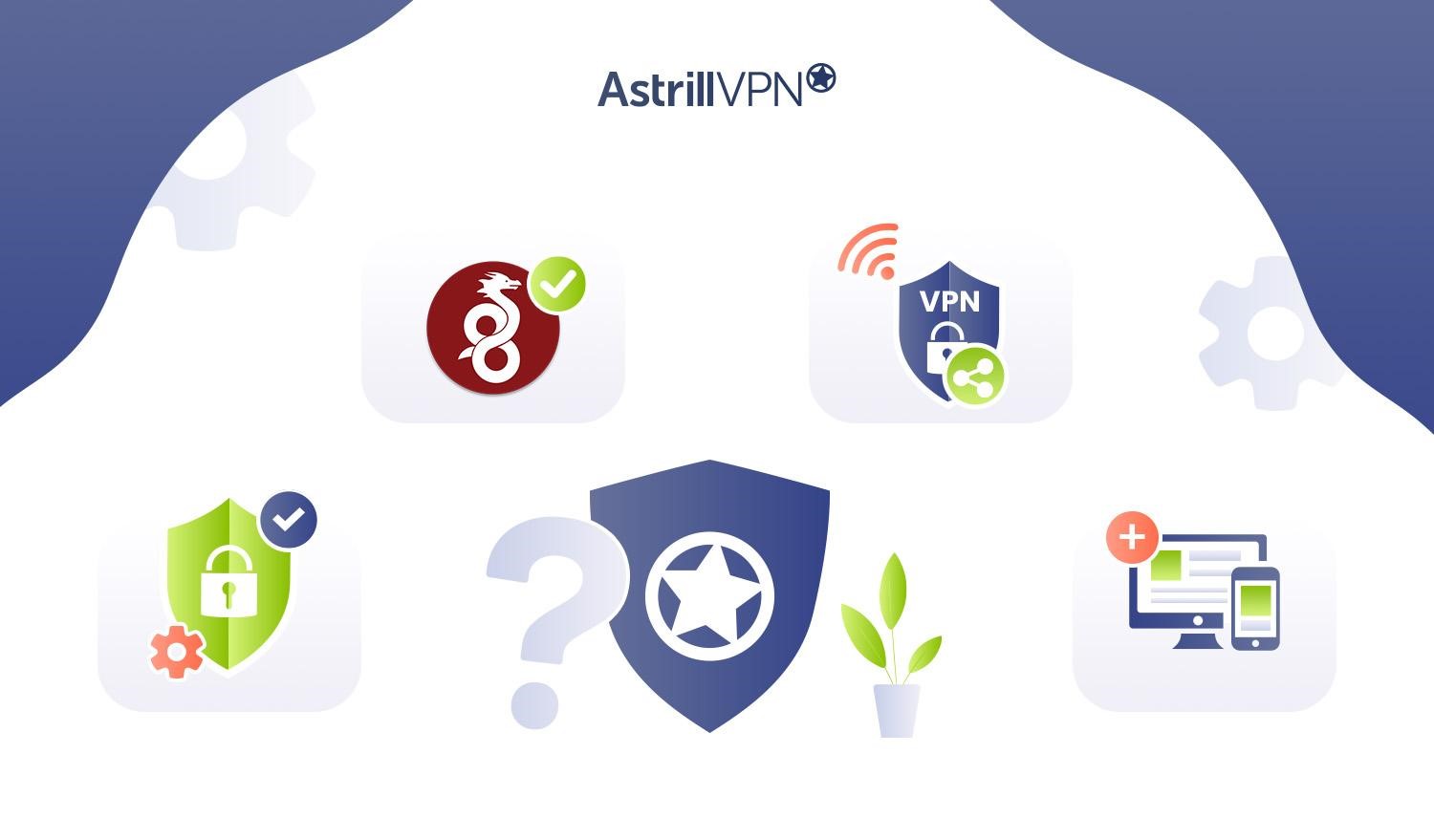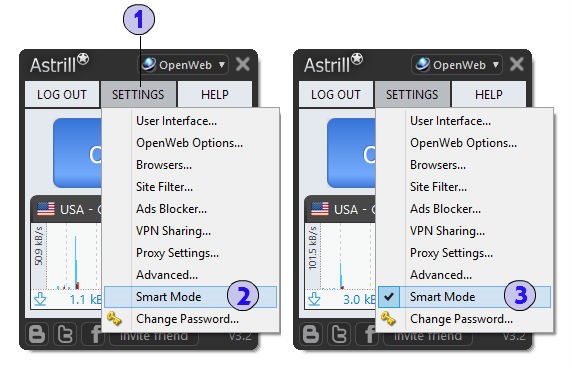Is a VPN Worth it? Here’s What You Must Need to Know

Urfa Sarmad

VPNs (Virtual Private Networks) have become a sought-after-privacy tool in the digital age because they encrypt your internet traffic and mask your IP address, keeping your data safe and secure from malicious actors, advertisers, ISPs (Internet Service Providers), and other third parties. You might have stumbled upon this article because you’re looking to invest in a VPN and are wondering if it’s worth it.
If you want to enhance your privacy and security and take it to the next level, then a VPN is just what you need. Your sensitive and confidential data gets routed through a secure and encrypted VPN tunnel, which means that not only are third parties unable to decipher your data, but your online activities remain concealed and hidden, so no one would be able to track your whereabouts.
So, if you’re curious and ready to uncover how effective a VPN is in meeting your privacy and security needs and whether it’s worth investing in, keep reading. This detailed guide will answer all of your pressing queries.
Table of Contents
Why Using a VPN Is Essential?

There are various reasons why organizations and individuals need a VPN to help tackle the digital landscape and preserve their privacy and security. Some of the primary reasons why you need a VPN include:
1) Protecting Your Data
Every time you’re using the data, your data can easily be tracked by various third parties, including your ISP. Advertisers can use your data to target you with personalized recommendations and ads tailored to your needs and preferences. If malicious actors and hackers access your sensitive and confidential information, they can use your data for identity theft and financial fraud.
VPNs have a range of extensive security features, such as a Kill Switch, Smart Mode, and a strict No Logs policy, ensuring that no malicious actor can decipher your sensitive data. AstrillVPN is a reliable VPN provider offering other security features like AES 256 encryption and robust encryption protocols like OpenVPN and Wireguard to protect your data and help you browse the web securely and anonymously.
2) Bypass Geolocation Restrictions & Censorship
VPNs are also effective in helping you bypass geolocation restrictions and strict censorship. For instance, you want to catch up on the latest movie or TV show on your preferred streaming service but can’t access it from your home country because of geolocation restrictions. A VPN lets you connect to a server where the streaming service is readily available.
AstrillVPN also allows you to bypass censorship, especially in countries with heavy censorship like China. You can use AstrillVPN to easily access censored content from your country, allowing unrestricted access to different types of content.
3) Save Money
Different countries offer different prices for the same products and services. If let’s say, you want to book a flight or a hotel, and it’s proving to be expensive from your location, then you can connect to a VPN server that offers the same products and services at a cheaper rate. This can help you afford products and services and ultimately save money.
4) Preventing ISP Throttling
ISPs (Internet Service Providers) have access to your IP address and can use it to track your online activities and location. The government has allowed ISPs to sell your data to third parties, which is a cause of concern for itself. You can prevent all this by connecting to AstrillVPN, as it will assign you an IP address from a different location, making it difficult for AstrillVPN to track your online whereabouts.
VPNs can also help prevent ISP throttling so you can continue streaming your favorite online games and watching the content of your favorite TV shows and movies without worrying about your ISP throttling your connection and affecting the connection speed.
Are VPNs Worth It?
You might be wondering do VPNs really work and is VPN worth it. The answer is yes. VPNs are 100% worth it, as they can help take your privacy and security to the next level and ensure that your sensitive and confidential data remains safe and secure from malicious actors and other third parties. VPNs are also beneficial when scrolling social media or browsing the internet when connected to a public network. Since public networks are the most susceptible to interception and cyber attacks, using a VPN adds an extra layer of security and ensures that your sensitive and confidential data remains safe and secure even when you’re using the VPN.
However, while VPNs help protect your privacy and security, they aren’t the only solution to protect your privacy and security. They must be used alongside other security measures to get the best out of maximum protection online. For example, VPNs can protect sensitive and confidential data but won’t help you eliminate online threats like Malware, adware, or spyware. You will need to invest in reliable antivirus software for that.
2025 Market Context: Why VPNs Matter?
Here are some key statistics and market drivers to show how the VPN space is evolving.
- The global VPN market is projected to grow from around USD 61.4 billion in 2024 to approximately USD 71.3 billion in 2025, reflecting roughly a 16 % annual growth rate.
- The broader VPN software market (consumer and enterprise) is expected to be valued at around USD 2.05 billion in 2025, growing at a CAGR of ~16.8 % through 2033.
- Drivers of growth include:
- A shift to hybrid and remote work models (leading to more devices and remote access needs)
- Growing concerns over data privacy, surveillance, and regulatory compliance (especially in enterprise contexts)
- More frequent cybersecurity threats and data breaches are pushing users (both personal and business) to look for encrypted connections.
- A shift to hybrid and remote work models (leading to more devices and remote access needs)
- Regional growth: North America continues to lead in share, but Asia-Pacific is growing fast due to digitalization, rising internet/mobile usage, and increasing awareness of privacy tools.
- Other usage trends: For example, 2023 global VPN downloads were already high (130 million in the first half of the year alone), suggesting strong consumer interest.
Real User Scenarios
Here are practical scenarios where VPNs shine.
- Public WiFi security: When you use open WiFi at a cafe, airport, or hotel, a VPN encrypts your traffic so others on the same network can’t eavesdrop.
- Travel and geo-restriction bypass: You travel abroad and want to access streaming services or websites restricted to your home country. A VPN enables you to appear as if you’re in your home country.
- Remote work access: You’re working from a remote location and must access corporate resources. A VPN helps secure that connection.
- Privacy from ISPs: You’re in a country or location where the ISP or network operator monitors or throttles your traffic. A VPN hides your traffic content from the local network.
- Avoiding censorship: VPNs can help obtain a freer internet connection in regions with internet restrictions or surveillance while respecting local laws.
- Multi-device protection: You own multiple devices (smartphone, tablet, laptop) and want a consistent, secure tunnel when switching between networks.
- Accessing services securely on mobile: Using your mobile phone on untrusted networks (e.g., public transit WiFi), a VPN adds a layer of protection for mobile apps and data in transit.
- Secure file sharing: If you use peer-to-peer services or need to share files on networks that restrict such traffic, a VPN may help circumvent those restrictions.
Factors To Consider When Choosing A Reliable VPN Provider
You’ll need to consider various factors when choosing to opt for a reliable VPN to ensure your privacy and security needs are handled. The main factors that you’ll need to take into consideration include:
1) Security Features
VPN providers should offer robust encryption protocols like AES-256 and support secure VPN protocols like OpenVPN, IKEv2, and WireGuard. They should also have a strict No-Logs Policy, meaning they will not keep track of your online activities when you’re using the VPN.
2) Server Locations
The more servers the VPN provider has, the better chances that they’ll be able to perform better and easily access geo-restricted content. It would help if you noted whether the provider has servers in locations to bypass censorship and access geo-blocked content.
3) Speed and Performance
The VPN provider should have fast connection speeds and minimal latency. Check whether the provider offers a split tunneling feature, which enables you to route only specific traffic through the VPN to enhance speed.
4) Device Support & Compatibility
The VPN provider should be compatible with different devices and operating systems, such as Windows, macOS, Linux, Android, and iOS. They should also allow multiple simultaneous connections on a single subscription if you use it for various devices.
5) Additional Features
The VPN provider should have additional features like malware protection, DNS leak protection, and Kill Switch functionality. The Kill Switch will automatically disconnect you from the internet if the VPN connection drops unexpectedly.
What Makes a VPN Worth It for Online Privacy?
Not all VPNs are created equal, especially when protecting your privacy. While many VPNs claim to offer security, only a handful truly deliver the features and transparency needed to safeguard your online activities. Here are the key factors that make a VPN the best choice for privacy:
1. Strict No-Logs Policy
A no-logs policy is the cornerstone of any privacy-focused VPN. This means the VPN provider does not record or store any information about your online activities, including browsing history, connection timestamps, or IP addresses. This ensures that even if authorities or third parties request user data, there’s nothing to hand over. Always look for a VPN with independent audits to verify its no-logs claims.
2. Military-Grade Encryption
Encryption keeps your data secure as it travels between your device and the VPN server. The best VPNs use c, the same standard governments and security experts trust worldwide. This level of encryption ensures that even if your data is intercepted, it’s virtually impossible to decipher.
3. Kill Switch
A kill switch is a critical feature that protects your privacy if the VPN connection drops unexpectedly. Without a kill switch, your internet traffic could revert to your ISP’s unsecured network, exposing your data. A reliable kill switch automatically disconnects your device from the internet until the VPN connection is restored, ensuring your privacy is never compromised.
4. DNS Leak Protection
When you connect to the internet, your device uses DNS (Domain Name System) requests to translate website names into IP addresses. If these requests are not routed through the VPN, your ISP or other third parties can see which websites you visit. A privacy-focused VPN includes built-in DNS leak protection to ensure all your online activity remains private.
5. Server Network and Jurisdiction
The location of a VPN provider’s headquarters and its server network can significantly impact your privacy. Ideally, a VPN should be in a privacy-friendly jurisdiction with strong data protection laws. Additionally, a large and diverse server network allows you to choose servers in locations with robust privacy regulations, further enhancing your security.
6. Advanced Protocols and Obfuscation
The best VPNs offer multiple protocols to suit different needs, such as OpenVPN, WireGuard, or IKEv2. These protocols balance speed and security, protecting your data without sacrificing performance. Additionally, obfuscation technology is essential for bypassing censorship and VPN blocks, making it ideal for users in restrictive regions.
7. Transparency and Trust
A trustworthy VPN provider is transparent about its operations, ownership, and privacy practices. Look for providers that publish regular transparency reports, undergo independent security audits, and have a clear privacy policy. This openness builds trust and ensures the VPN is committed to protecting your data.
8. Speed and Reliability
While not directly related to privacy, speed and reliability are crucial for a seamless user experience. A VPN that slows down your connection or frequently disconnects can discourage you from using it consistently, exposing your data. The best VPNs for privacy offer fast, stable connections without compromising security.
9. Multi-Platform Support
Privacy isn’t limited to your desktop or laptop—it extends to all your devices. A top-tier VPN should offer apps for multiple platforms, including Windows, macOS, iOS, Android, and even routers. This ensures that all your devices are protected, no matter where or how you connect to the internet.
10. Customer Support and Reputation
Finally, a VPN’s reputation and customer support are strong indicators of its commitment to privacy. Look for providers with positive reviews from users and experts and responsive customer support teams that can help you resolve issues quickly.
Why Is AstrillVPN The Preferred VPN Provider For 2026?

If you’re looking to invest in a reliable VPN provider, then AstrillVPN is your go-to VPN provider. If we haven’t convinced you, AstrillVPN has extensive and reliable security features that will help you take your privacy and security to new heights. Here’s why you need to invest in AstrillVPN:
1) Security Features
AstrillVPN has two effective security features that can help protect your sensitive and confidential data. This includes the Kill Switch feature and Smart Mode. The Kill Switch feature ensures that if the VPN connection unexpectedly drops for some reason, then the VPN will automatically disconnect you from the internet so that your data does not get compromised.
The Smart Mode feature allows you to access regional websites and online services with a regional IP address so that you can beat slow service, and it makes it even harder for ISPs to detect that you’re using a VPN since you have a regional IP address. However Smart Mode is only available for users in China.

2) WireGuard Protocol
Wireguard offers a high-speed VPN connection while maintaining security with state-of-the-art cryptography. AstrillVPN offers the Wireguard protocol, which allows you to enjoy uninterrupted VPN connectivity and reduces the risk of getting disconnected from the VPN during network transitions. It prioritizes seamless roaming and offers a reliable and consistent VPN experience, which allows you to stay connected securely.
3) VPN Sharing
Not all your devices will be able to run VPN software. But you don’t have to limit yourself with AstrillVPN. By configuring your network settings, any device on your local network can use a VPN to secure and encrypt internet traffic. If you want your internet traffic to be secured on all your devices, that’s where a VPN-sharing feature comes into the picture.
You can use AstrillVPN to secure all devices on your home network using a VPN router. The router will connect to the VPN server, and all devices that are connected to the router’s WiFi can use the VPN connection without requiring VPN software. AstrillVPN’s router applet offers other advanced features like the website filter and port forwarding.
4) Website & App Filter
Some users might only want to use the VPN with specific applications, like Skype, Torrenting, or banking apps, and not when browsing. Others would prefer to tunnel everything and want to have the option of excluding certain apps from the VPN. AstrillVPN allows you to choose between both scenarios, and you can choose between Tunnel all apps, Tunnel only selected apps, and Exclude selected apps modes. This feature is available in OpenWeb, StealthVPN, OpenVPN, and Wireguard protocols.
Who Doesn’t Need a VPN?
Here are scenarios where a VPN may be less necessary:
- You use trusted, private networks consistently and avoid public WiFi / open hotspots.
- You only do non-sensitive web browsing (e.g., reading news, basic streaming) and are comfortable with existing network protections.
- You aren’t trying to access region-locked services or bypass geo-restrictions.
- Your device or system already uses full-disk encryption and secure DNS, and you don’t handle sensitive data.
- You are minimally concerned about your ISP seeing your traffic metadata and are comfortable with your local laws/regulations.
You use a mobile data connection and rarely connect via public WiFi.
VPN Limitations
Here are some of the main caveats to keep in mind:
Performance and Speed Trade-Offs
Using a VPN introduces encryption overhead, additional routing, and sometimes distance to a server, which can slow down connections or increase latency.
Trust and Provider Risk
A VPN moves your traffic to the provider’s server. You may still have a privacy risk if the provider logs traffic, has weak security, or poor policies. Not all VPNs are equally trustworthy.
Not a Magic Bullet for Security
A VPN encrypts traffic from your device to the server, but it won’t protect you from malware, phishing, weak passwords, or compromised end-devices. It’s just one layer of defence.
Geo-Blocking & Legal/Ethical Grey Areas
Some platforms actively block known VPN servers; moreover, using a VPN to bypass local restrictions might breach terms of service or local laws. Users must understand their jurisdiction.
False Sense of Anonymity
Even with a VPN, you may still be tracked via browser fingerprinting, cookies, device identifiers, etc. A VPN should not be assumed to make you fully anonymous.
Cost vs. Benefit (for Some Users)
Some premium VPNs require subscriptions; the cost may outweigh the benefit for casual users who rarely travel or use public WiFi.
Is Free VPN worth it?
Using a free VPN may seem appealing. However, it has more risks than benefits. Some free VPN providers can install Malware, which puts your security at risk and completely goes against what a VPN stands for and was set out to do. Since the VPN provider is free, they can also sell your personal and confidential information to third parties to make revenue. They often sell your personal information to advertisers so that they can target you with personalized ads.
Free VPNs also have poor performance and limited server choices, and most of their servers are overcrowded with users, which affects their performance. That’s why we recommend not using a free VPN. Instead, we opt for a reliable and premium VPN service like AstrillVPN, which offers excellent security features and fast and stable performance.
Wrapping Up
Your data is your most valuable possession, and it is your responsibility in a digital age where cyber crimes and cybercriminals are on the rise and are growing smarter and more competent when it comes to stealing your sensitive and confidential data. A VPN lets you keep your data private and secure, ensuring no malicious actors can intercept it. So, is a VPN worth it? It most definitely is.
Frequently Asked Questions (FAQs)
A VPN is crucial to protect your online activities, conceal your IP address, and keep your data safe and secure. A VPN is essential to enhance your online privacy.
VPNs are legal in most countries of the world. However, you may face a penalty if you’re using a VPN in censorship-heavy countries like North Korea or Iraq.
A VPN typically increases battery consumption by 5-15% during active use, which is less than most users expect. Recent 2025 testing across multiple devices (iPhone, Android, MacBook, Windows laptop) revealed that VPN battery drain varies significantly based on activity: browsing and social media scrolling increased battery usage by approximately 6% over 2 hours, streaming video added only 2.5% extra drain, and idle background operation consumed just 1% additional battery. The impact depends on several factors: VPN protocol choice (WireGuard is most battery-efficient, OpenVPN drains more), encryption level (AES-256 uses more power than AES-128), network type.


No comments were posted yet